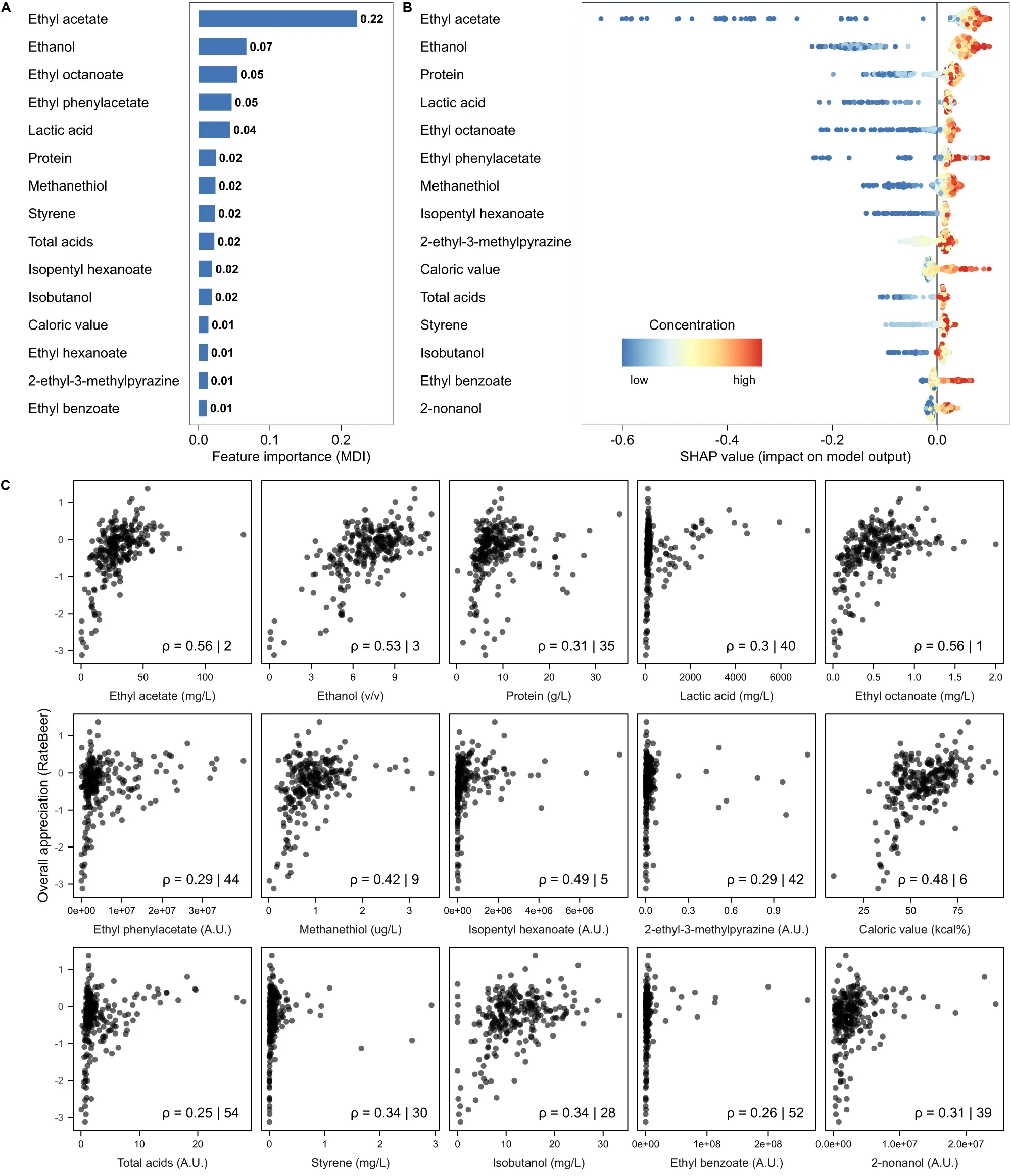Want Better Tasting Beer? There’s an AI for That
2024-03-26 20:25:15

7x24 Newsflash
16:00 2025-07-10
After two consecutive days of pressure, Trump again urged Federal Reserve Chairperson Powell to cut interest ratesUS President Donald Trump once again urged Federal Reserve Chairperson Powell to cut interest rates in a post on the social media platform "Real Social". The day before, Trump posted on the social media platform on the 9th, criticizing the current interest rate policy of the Federal Reserve, saying that the interest rate set by the Federal Reserve is at least 3 percentage points higher, and each percentage point of interest rate is causing the United States to refinance $360 billion a year. Acco...
15:57 2025-07-10
German state-owned development bank NRW.BANK issue 100 million Eurobonds on the Polygon chainGermany's state-owned development bank NRW.BANK issue blockchain bonds worth 100 million euros (about $116.70 million) on the Polygon blockchain.
The bond is registered under the German Electronic Securities Act (eWpG), with infrastructure provided by Cashlink's BaFin-regulated crypto securities registry. The offering attracted participation from several institutional investors, with Deutsche Bank, DZ Bank, and Decca Bank acting as lead underwriters, marking the growing acceptance of digital sec...
15:36 2025-07-10
Ethena Labs Announces Coinbase International as USDe's Underlying Asset Hedging PlatformEthena Labs announced Coinbase International as the latest hedging platform for USDe's underlying assets. "Coinbase's unpositioned squaring contracts have recently surpassed $1 billion, providing significant liquidity to diversify the hedging of USDe's underlying assets through attractive funding rate allocations."
15:30 2025-07-10
A giant whale withdrew 17,925 ETH from Kraken in the past half hour.According to analyst Ember Monitor, a giant whale has raised another 17,925 ETH from Kraken in the past half hour, worth about $50 million. A total of 72,050 ETH worth $200 million has been raised in 22 hours.
15:14 2025-07-10
Kraken launches local currency financing services in Argentina and MexicoKraken has launched local currency financing services in Argentina and Mexico, where customers can now deposit local currencies - ARS and MXN - via domestic payment methods, providing faster and easier access to Kraken's crypto services.
In addition, in Argentina, Kraken is now officially registered as a virtual asset service provider (VASP) with Argentina's National Asset Management Commission (CNV), enabling it to operate in full compliance with local regulations.
15:06 2025-07-10
Israeli Defense Minister: If Iran threatens Israel, Israel will take another strike against Iran.Israeli Defense Minister: If Iran threatens Israel, Israel will take another strike against Iran.
15:01 2025-07-10
As of 23:00 closing, the main domestic futures contracts rose more and fell less, coking coal and glass rose by more than 2%, iron ore, hot coil, coke, rebar, rubber, rapeseed meal, soda ash, synthetic rubber, No. 20 rubber rose by more than 1%, and in terms of decline, fuel oil fell by more than 1%.As of 23:00 closing, the main domestic futures contracts rose more and fell less, coking coal and glass rose more than 2%, iron ore, hot coil, coke, rebar, rubber, rapeseed meal, soda ash, synthetic rubber, No. 20 rubber rose more than 1%, in terms of decline, fuel fell more than 1%, short fiber fell nearly 1%
14:59 2025-07-10
Federal Reserve Musalem: Stablecoins Could Become an Important Component of PaymentsFederal Reserve Musalem: Stablecoins are an interesting innovation in payments, and it's good to have a regulatory framework. Stablecoins could become an important part of payments.
14:56 2025-07-10
Federal Reserve Musalem: Stablecoins could become an important part of payments.Federal Reserve Musalem: Stablecoins could become an important part of payments.
14:55 2025-07-10
Federal Reserve Musalem: Stablecoins are an interesting innovation in payments, and establishing a regulatory framework is a good thing.Federal Reserve Musalem: Stablecoins are an interesting innovation in payments, and establishing a regulatory framework is a good thing.
14:53 2025-07-10
Former US Vice President Mike Pence supported Trump's speech on the Federal Reserve and its policies, and reiterated his opposition to the Fed's dual mandate of balancing prices and employment. Click to view...Former US Vice President Mike Pence supported Trump's speech on the Federal Reserve and its policies, and reiterated his opposition to the Fed's dual mandate of balancing prices and employment. Click to view...
14:50 2025-07-10
The discussion of the draft crypto market structure bill will be postponed until next weekAccording to crypto journalist Eleanor Terrett, the U.S. Senate Banking Committee plans to postpone discussion of the draft Crypto Market Structure Act until next week, with the original goal of this week. Meanwhile, the House Ways and Means Oversight Subcommittee has rescheduled a hearing on the development of the Crypto Tax Policy Framework for the 21st Century to next Wednesday (16th), during "Crypto Week".
Hot News
Cryptocurrency Payback Calculator - InstructionsVitalik: "DAO" means "project", "official" means "scam"Backpack Exchange已面向英国用户开放其服务派盾:NIBI同名代币发生Rug Pull,损失约31.39万美元香港金管局推出稳定币发行人沙盒CIAN与Lido合作,在Base上推出wstETH Hyper-Staking VaultGate.io 3月储备金总额突破60亿美元,额外储备金超8亿美元Polyhedra Network已于3月12日16时完成ZK空投快照英FCA:不会反对加密资产相关ETN上市请求BTC流通市值突破1.4万亿美元,续创新高Space Nation将于3月底启动OIK代币空投
Related Recommendations
Cryptocurrency Payback Calculator - InstructionsBackpack Exchange已面向英国用户开放其服务派盾:NIBI同名代币发生Rug Pull,损失约31.39万美元香港金管局推出稳定币发行人沙盒CIAN与Lido合作,在Base上推出wstETH Hyper-Staking VaultGate.io 3月储备金总额突破60亿美元,额外储备金超8亿美元Polyhedra Network已于3月12日16时完成ZK空投快照英FCA:不会反对加密资产相关ETN上市请求BTC流通市值突破1.4万亿美元,续创新高Space Nation将于3月底启动OIK代币空投